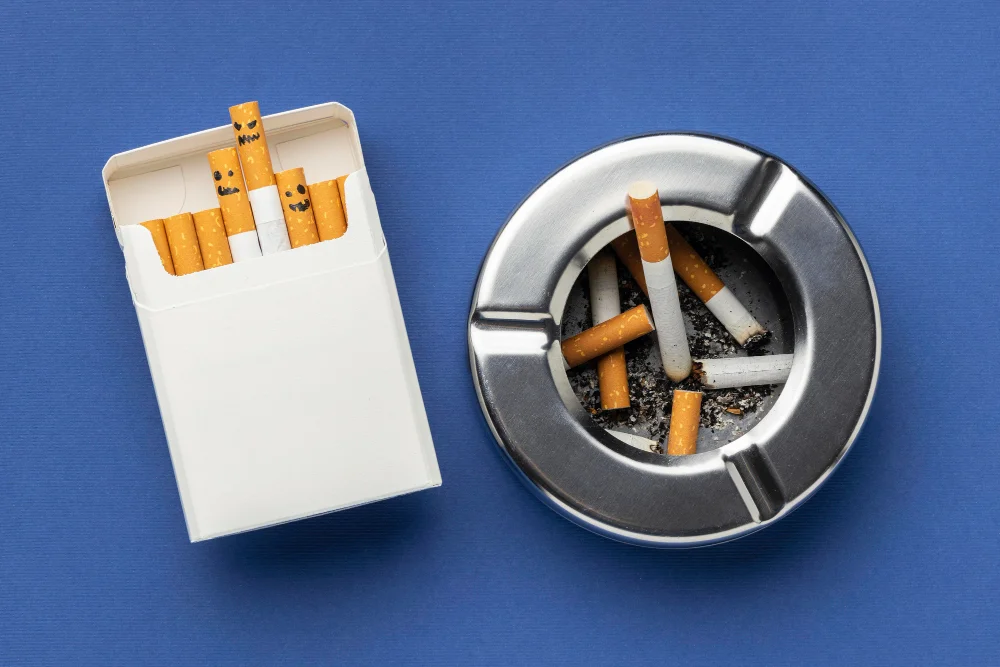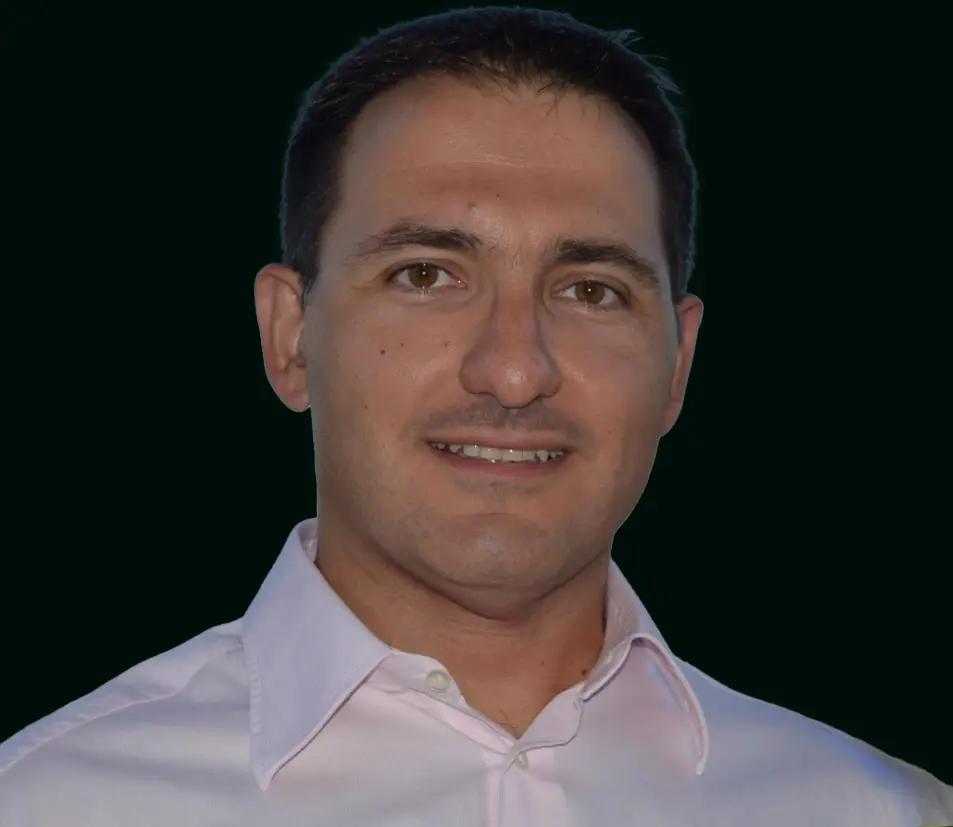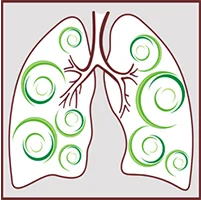Smoking is a habit that has been embedded in our society for many decades, but it is also surrounded by many myths and many misconceptions.
Smoking is a widespread phenomenon that has affected our society for many decades. Although many people are aware of the health risks of smoking, the habit remains embedded in our daily lives. At the same time, the world of smoking is surrounded by myths and misconceptions that often make it difficult for people to understand its real effects.
Myths & Realities
Why are cigarettes harmful?
Cigarettes contain over 4000 different substances, most of them harmful-toxic to the body. (It is estimated that 100,000,000,000,000,000,000,000 oxidising molecules are emitted per inhalation).
Although nicotine is perhaps the most harmless of these substances, it is the cause of addiction and therefore the cause of the difficulty we face in trying to quit. It has been found that by smoking 5 cigarettes a day for 10 days, the brain undergoes such structural changes (at the receptor level) that addiction sets in!
Myth 1.
The Modern Way of Life
Modern lifestyle (diet, environmental pollution, stress, etc.) is more harmful than smoking.

Reality 1.
Smoking Kills.
- Cigarette smoke contains at least 4000 harmful and carcinogenic substances
- There is no other “habit” with such a high content of dangerous substances.
- About 1 in 3 deaths in men aged 40-50 are caused by smoking!
- A healthy smoker loses 3 months of life for every year he/she smokes.
That is why – in today’s world – smoking and not any other factor is the first preventable cause of death!
Myth 2.
Longevity
I know many people who got lung cancer while not smoking and others who smoked into their 80s and are fine!

Reality 2.
Lung cancer.
- 90 out of 100 cases of lung cancer are caused by active smoking. It is obvious that the remaining 10 are caused by other causes (passive smoking, radiation from the earth (radon), genetic mutations, etc.).
- Not all smokers get lung cancer. But smokers are 20 times more likely than non-smokers. Smoking is associated with 14 types of cancer and a plethora of other diseases.
It is to be expected that we remember those who contracted cancer while leading a healthy lifestyle. But they are the exception.
Myth 3.
It doesn’t hurt me
Fortunately I can and do smoke only 3 cigarettes a day and this amount and frequency cannot harm me!

Reality 3.
It hurts you!
The duration of smoking exerts harmful effects in an exponential (multiple) manner while the quantity in a linear-proportional manner.
That is, it is worse to smoke 30 years of 1 pack than to smoke 10 years of 3 packs, even though in both cases the cigarettes are the same in total.
Myth 4.
He’s just a cigarette smoker!
I cough every day and cough up phlegm. He’s just a cigarette cough!

Reality 4.
Coughing in a smoker is never normal.
It is a big mistake to think that your cough is not a problem! Coughing in a smoker is never normal. Cancer, for example, can be first manifested by coughing.
- But most often you suffer from Chronic Obstructive Pulmonary Disease – COPD (chronic bronchitis and emphysema), a progressive destructive disease of the lungs that causes significant dysfunction and disability.
- COPD is now the 4thmost cause of death in the world! Diagnosis is made by a pulmonologist with spirometry.
Myth 5.
I look more attractive!
I smoke because I attract the opposite sex, I look more attractive-attractive-or!

Reality 5.
You don’t look any more attractive!
Smoking causes premature aging of the skin – wrinkles, gray hair, hair loss, permanent damage to teeth.
Smoking, smellsextremely awful to a non-smoker and often to smokers themselves.
Cigarette nicotine is a vasoconstrictor, reduces blood flow and causes erectile dysfunction! Smoking reduces strength in any activity
Do you find anything appealing about them?
Myth 6.
It reduces my stress!
I smoke to cope with stress and anxiety. I feel it helps me a lot.

Reality 6.
Doesn’t reduce your stress!
Reducing anxiety is an illusion! Smoking reduces the tension caused by the lack of nicotine which only exists in addicts.
That is, it covers the need that it created for you! It’s like a drug addict needs his fix to ‘calm down’.
It has been proven that people who quit smoking have improved their mental health, they are calmer, they sleep better!
Myth 7.
It helps with ulcerative colitis.
Ulcerative colitis is a chronic inflammatory bowel disease that causes inflammation and ulcerative damage to the intestinal lining.

Reality 7.
Colon cancer.
Possibly reduces symptoms of colitis because nicotine is vasoconstrictive and reduces blood flow to the intestine
But it does cause colon cancer, which is the reason why you are undergoing a preventive annual colonoscopy because you have ulcerative colitis.
Myth 8.
Smoking is company!
I perceive smoking as a companion, especially in my social gatherings or in moments of peace and relaxation. It accompanies me everywhere and always.

Reality 8.
NO. It’s not company!
If it was company, you wouldn’t need it when you’re with friends.
Cigarettes are work, not companionship.
The smoker starts and ends his day constantly thinking about smoking. Simple everyday things, like dealing with children, become agonizing because they are dominated by the need and thought of cigarettes.
And this happens for the majority of the smoker’s life!
Myth 9.
I’m not bothering anyone by smoking!
I don’t feel that those of us who smoke bother anyone with our smoking, but the presence of smoke can negatively affect the health of the people around us.

Reality 9.
Passive smoking:
- Causes approximately 79,000 deaths annually in the European Union / 600,000 worldwide.
- It is the third leading preventable cause of death.
- Increases the likelihood (compared to non-smokers) by:
- 24% for lung cancer
- 30% for ischemic heart disease
- 35% for respiratory diseases
- 45% for stroke
- 70% for breast cancer (in young women)
- Increases the risk of developing asthma by 40% and COPD by 66%. It exacerbates and complicates their treatment.
- Puts pregnancy at risk like active smoking.
- Affects the development of children’s lungs and increases the frequency of infections in childhood.
- Quintuples the likelihood of sudden infant death syndrome.
- It sets a negative example for children!
- It bothers those around you!
Myth 10.
It doesn’t harm the fetus.
My obstetrician told me that 1-2 cigarettes won’t harm me or the fetus now that I’m pregnant!
Cigarette smoke contains chemicals that can cause serious health effects on the baby and the mother, but 1-2 cigarettes are okay.

Reality 10 .
Can one take responsibility for potential harm to their child?
Your obstetrician simply understands your addiction and tries to limit the damage by asking you to reduce it. The pregnant woman smokes for two organisms.
During pregnancy, smoking is implicated in increased risk of spontaneous abortions, pre-eclampsia, prematurity, placental abruption-hemorrhage, reduced fetal growth, future onset of asthma, and allergies.
Can one take responsibility for potential harm to their child?
Myth 11.
If I quit, I’ll gain weight!
I’m afraid to quit because I’ll gain weight… My nutritionist told me that there are various reasons why people may gain weight when they quit smoking.
One of them is the increase in appetite that can be caused by the absence of nicotine.

Reality 11.
It’s not true…
It has been found that those who quit smoking gain an average of 3 kilograms per year, which are very easily lost thereafter. Some don’t gain any weight at all, while one in six loses weight!
If you follow your doctor’s instructions, this won’t happen.
There are also medications used in smoking cessation that help maintain weight.
Myth 12 .
I don’t smoke regularly…
What I describe as my own way of smoking is known as “a puff here and there” or “smoking on occasions” and not out of addiction or habit.
I don’t smoke daily, and my craving for nicotine cannot be strong, nor can it ever become strong.

Reality 12 .
Don’t be fooled…
Cigarette nicotine enters our system when smoke reaches our lungs. So if you could avoid inhaling the smoke deeply, then you wouldn’t feel any satisfaction!
Cigarettes cause oral, tongue, and throat cancer!
Myth 13.
There’s no way I can do it.
The struggle against smoking addiction can be difficult and may involve many challenges.
There’s no way I can do it. I bought gum and pills from the pharmacy myself and they didn’t help at all! I was extremely nervous.

Reality 13 .
It’s difficult but not impossible.
It’s difficult but not impossible to quit smoking. It has been found that fewer than 5 out of 100 people manage to quit smoking on their own.
Smoking cessation is a treatment for a challenging disease, addiction.
For this reason, there are now highly effective medications that reduce or eliminate withdrawal symptoms (e.g., nervousness).
There is now a way to quit smoking easily and effectively in smoking cessation



Smoking Cessation Clinic
Smoking cessation clinics operate in private pulmonary clinics and in some hospitals. Pulmonologists who specialize in smoking cessation have received special training both during their specialization and in specialized seminars regularly organized by the Greek and European Respiratory Societies.
In smoking cessation clinics, scientifically proven and individually tailored methods of guidance and therapeutic intervention (pharmacological or non-pharmacological) are applied, making quitting smoking an easy and safe reality for the patient, with success rates exceeding 80%.
At the smoking cessation clinic, we can easily and accurately:
- Calculate the level of nicotine addiction with specialized questionnaires.
- Measure the accumulation of carbon monoxide in your body (a toxic gas produced by smoking) with a special machine and evaluate both addiction and the significant ongoing risk you face by smoking.
- Determine the damage caused by smoking to the lungs through simple spirometry and, more specifically, with a Complete Pulmonary Function Test (with appropriate equipment).
- Administer specially developed medications to help you quit smoking without difficulty. These medications are extremely safe when given under medical supervision but are not necessary for all patients. Even more importantly, these medications are not suitable for every patient and should not be taken without a prescription just because they helped someone you know.
Only the smoking cessation specialist pulmonologist can recommend the appropriate and specialized treatment for you, if needed.
Do not self-medicate by taking medications on your own.
Your decision alone is enough to make this day a milestone in your life.



